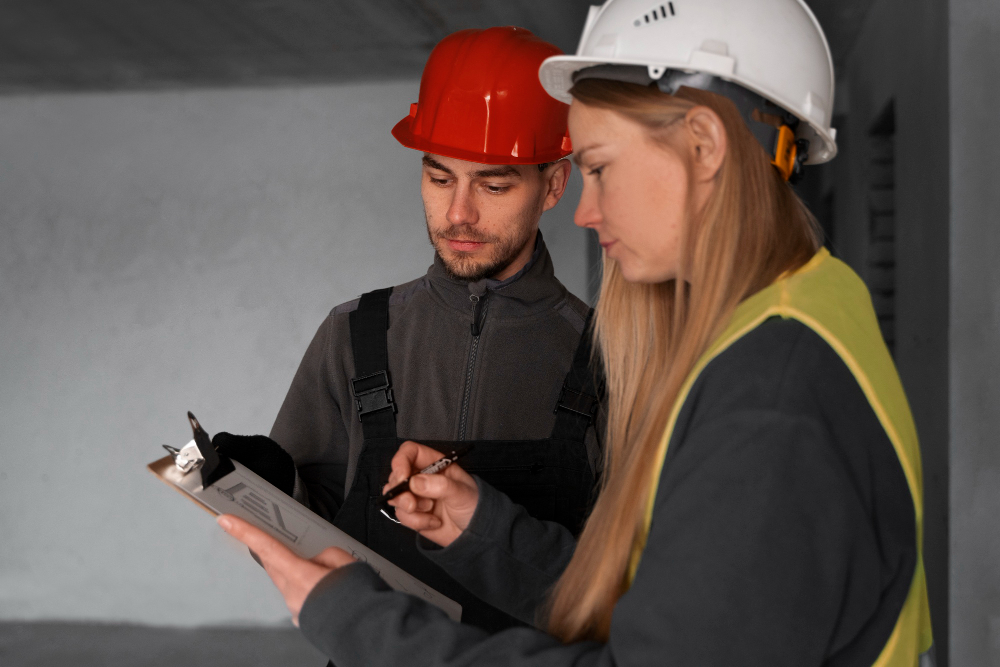The Unseen Guardian: A Deep Dive into the Role of Your Home Inspector
Buying a home is arguably one of the most significant financial and emotional decisions you will ever make. It’s a...

Buying a home is arguably one of the most significant financial and emotional decisions you will ever make. It’s a whirlwind of open houses, paperwork, and dreams of the future. Amidst this excitement, it’s easy to overlook the critical step that could save you from future heartache and financial strain: the professional home inspection. This process is your primary tool for looking beneath the surface, transforming a property from a mere listing into a known entity. Think of it not as a hurdle, but as your most powerful source of objective information before you finalize your purchase. This guide will walk you through the multifaceted role of a home inspector, what to expect during the process, and how to leverage their findings to make a confident decision.
What Exactly Does a Home Inspector Do?
A home inspector is a trained and, in many states including Utah, licensed professional who conducts a visual examination of a property’s physical structure and major interior systems. Their goal is to provide an unbiased, objective report on the home’s current condition. It’s crucial to understand that an inspection is a snapshot in time, not a prediction of the future. They identify existing issues, potential concerns, and items that are at the end of their useful life.
The Scope of the Inspection
A standard inspection is remarkably thorough. A qualified home inspector will meticulously evaluate the property from the foundation to the roof. Their checklist typically includes:
- Structural Components: Foundations, floors, walls, and roofs.
- Exterior Evaluation: Siding, paint, windows, decks, and drainage.
- Roofing and Attic: Roof coverings, gutters, flashing, and evidence of leaks or inadequate ventilation.
- Plumbing Systems: Pipes, fixtures, faucets, water heaters, and drainage.
- Electrical Systems: Main panels, circuit breakers, wiring, outlets, and light fixtures.
- Heating and Cooling Systems: Furnaces, air conditioning units, and ductwork.
- Interior: Walls, ceilings, floors, stairs, and windows.
- Insulation and Ventilation: Attic and crawlspace insulation and ventilation.
The Limits of an Inspection
It’s equally important to know what a general home inspection does not cover. Inspectors are not allowed to damage property, so they cannot see inside walls or under sealed flooring. They typically do not evaluate specialized systems like:
- Pest control (this requires a separate pest inspection).
- Swimming pools or spas.
- Septic systems (often a separate evaluation).
- Environmental hazards like mold, asbestos, or radon (these require specific tests).
A professional salt lake city home inspector will be transparent about these limitations and may recommend further evaluation by a specialist if they spot red flags.
Decoding the Importance of a Home Inspection
Many buyers, especially in competitive markets, consider waiving the inspection contingency to make their offer more attractive. This is a monumental risk. The importance of home inspection cannot be overstated, as it serves three primary, critical functions for a homebuyer.
Uncovering Hidden and Costly Issues
You might love the newly renovated kitchen, but what about the aging electrical panel that’s a fire hazard? Or the subtle crack in the foundation that signals structural movement? A trained eye can spot these issues that are invisible to the untrained buyer. Identifying a major problem, like a failing roof or an outdated plumbing system, can save you tens of thousands of dollars in unexpected repairs down the line. The inspection fee is a small price to pay for this financial foresight.
Providing Negotiating Power
The inspection report is not just a list of problems; it’s a powerful negotiation tool. If the inspection reveals significant defects, you have several options. You can:
- Request Repairs: Ask the seller to fix certain items before closing.
- Request a Credit: Ask for a reduction in the sale price or a cash credit at closing to cover the cost of the repairs you will need to make.
- Walk Away: In the most severe cases, if the issues are too extensive, you can exercise your inspection contingency to terminate the contract and have your earnest money returned.
Planning for Future Maintenance
Even on a home in excellent condition, the inspection report becomes your first and most important home maintenance manual. It will note the age of major systems like the water heater and HVAC unit, giving you a realistic timeline for when you might need to budget for their replacement. It will point out minor issues, like a leaking faucet or poor gutter drainage, that you can address to prevent larger problems later. This knowledge empowers you to be a proactive homeowner from day one.
How to Prepare for and Get the Most from Your Inspection
Simply hiring an inspector isn’t enough. To truly benefit, you need to be an active participant in the process. Your preparation and engagement can significantly impact the value you derive from the service.
Selecting the Right Professional
Your choice of inspector is paramount. Do not simply pick the first name from an online search or use the one recommended by your real estate agent without doing your own due diligence.
- Check Credentials: Ensure they are properly licensed in your state. Look for certifications from reputable national organizations like InterNACHI or ASHI, which require ongoing education and adherence to a standard of practice.
- Read Reviews: Look at reviews on multiple platforms to gauge their reputation for thoroughness and communication.
- Ask About Their Experience: Inquire how long they have been in business and how many inspections they have completed. An experienced inspector is more likely to have encountered a wide array of issues.
- Sample Report: Ask to see a sample inspection report. It should be clear, detailed, and include photos to help you understand the findings.
During the Inspection: Your Role as a Buyer
Plan to attend the entire inspection, which can take 2-4 hours depending on the home’s size and condition.
- Be Present and Observant: Follow the inspector around (without getting in their way). This is your chance to see the issues firsthand and ask questions in real-time.
- Ask Questions: Don’t be shy. If you see something you don’t understand, ask. “What does that crack mean?” “Is this a major concern or routine maintenance?” “How does this system work?”
- Take Notes and Photos: While the official report will be comprehensive, your own notes can be helpful for context.
- Focus on the Big Picture: It’s easy to get overwhelmed by a long list of minor issues. Pay the most attention to major defects related to safety, structure, and the expensive systems (roof, foundation, HVAC, electrical, plumbing).
After the Inspection: Understanding the Report
The final report is the deliverable you will use for your decisions. A professional salt lake city home inspector will provide a comprehensive report, usually within 24 hours.
- Read It Thoroughly: Don’t just skim the summary. Read every section and look at every photo.
- Categorize the Issues: Separate the findings into three categories:
- Major/Safety Hazards: Items that are unsafe, not functional, or require immediate, costly repair (e.g., structural damage, faulty wiring).
- Recommendations for Future Repair: Items that are functional now but will need attention soon (e.g., a roof with 5 years of life left).
- Minor Maintenance: Small items that are easy and inexpensive to fix (e.g., a loose handrail).
- Consult with Your Agent: Use this categorized list to have a strategic discussion with your real estate agent about what to request from the seller.
Conclusion
the journey to homeownership is filled with important steps, but few are as revealing and empowering as the home inspection. It is an investment in peace of mind, financial security, and your future enjoyment of the property. By understanding the process, choosing your inspector wisely, and actively engaging from start to finish, you transform this evaluation from a simple formality into the cornerstone of a sound and confident home-buying decision. The insights provided by a diligent salt lake city home inspector are the key to unlocking the true story of your potential new home.




